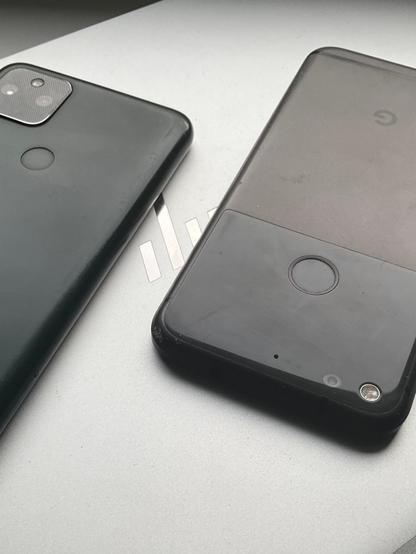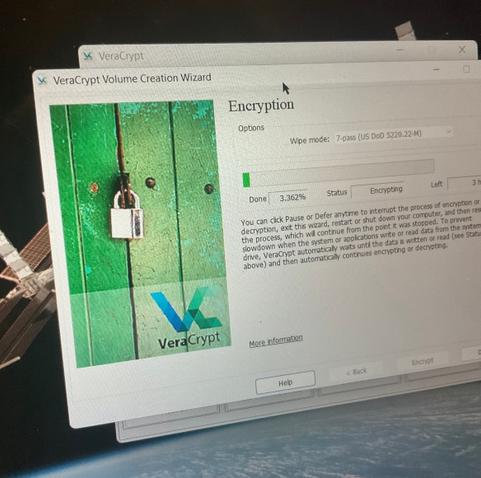My home office always needs cleaning, but there’s one part of it that stays especially resistant to tidying up–the small collection of old and inoperative hardware that might have my data in a condition that might be accessible.
I think of these probably-defunct devices as my own rough equivalent of nuclear waste, but instead of radioactive isotopes they may hold old personal data that I don’t want to see leak out. That’s “may” because unlike spent reactor fuel that we know has to be kept safe, these gadgets no longer function to a degree that would let me confirm that I’d wiped my traces from them or finish that device-reset work.
The most obvious, meaning dustiest, example is the Pixel 1 I’d retired five years ago. I was all set to ship it back to Google for a trade-in offer of $25 when I bought my Pixel 5a at the end of 2021–but then I realized that it no longer charged, which zeroed out the return value.
I couldn’t remember if I’d done the right thing in 2019 and factory-reset the Pixel then. Android’s storage encryption should have meant nothing could be read off the phone anway, even if somebody could breathe electric life back into the thing–but at the end of a busy year it seemed easier to set the old phone aside and figure things out later. And “aside” is where that Pixel remains.
A year later, the HP laptop that I’d bought in late 2017 suffered an apparently fatal display malfunction that meant I could not expect to operate the thing for more than a few minutes after booting it up. That left a drive’s worth of data unprotected–for whatever stupid reason, this computer did not support Windows device encryption.
This output meltdown also left this HP unwipeable, in the sense that I couldn’t use the computer for long enough to install and run the open-source VeraCrypt disk-encryption utility. So once again, the easiest move was to set the device aside on my desk.
Thursday morning added a third device to this sad list: the Pixel 5a that apparently wasn’t aging as well as I’d thought. When I tried checking my notifications on that phone after waking up (I know, not a strong choice), it had mysteriously stopped responding to fingerprint unlocking, taps of its buttons or its screen, or any of the other troubleshooting steps outlined in a Google tech-support note.
This phone unquestionably has my information on it, but is that data in a Schrödinger-esque state of uncertainty? Or is it gone by virtue of the device’s circuitry suffering the kind of catastrophic failure that would make it so unresponsive?
As I scrapped Thursday-night plans to work this problem, I thought that I might as well take another look at the laptop that had been gathering dust on my desk for the last two years.
And after one screen freeze, that seven-year-old HP somehow booted up and kept working long enough for me to install VeraCrypt and encrypt the disk with a complex passphrase generated by 1Password. That makes the entire PC unbootable and unreadable for somebody who doesn’t have that login.
Then the old laptop obliged me further by letting me add a local account and delete my own account. Perhaps I should push my luck further by reformatting the drive and then reinstalling Windows.
Or I could declare victory and take this device to the nearest Apple Store for proper recycling… but procrastination has its own half-life, so I doubt I’ll get that errand done right away.
https://robpegoraro.com/2024/08/02/a-gadget-writers-minor-equivalent-of-nuclear-waste/
#deviceEncryption #encryption #eraseDevice #factoryReset #halfLife #HPSpectreX360 #Pixel1 #Pixel5a #resetDevice #Schrödinger #secureDelete #VeraCrypt #wipeDevice


